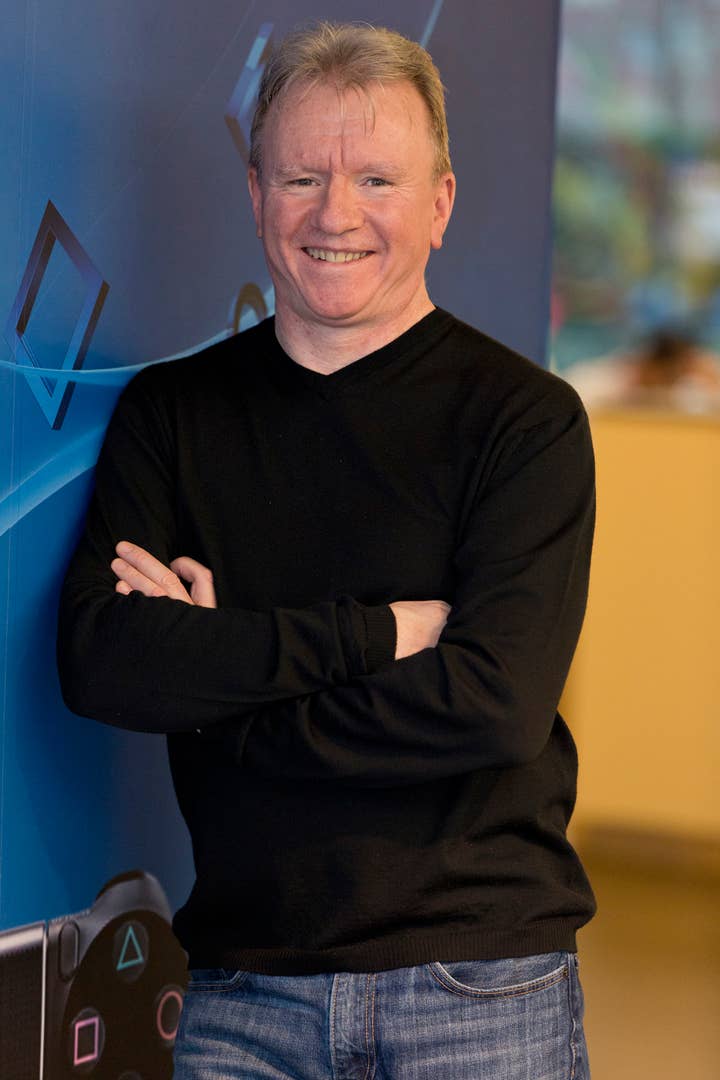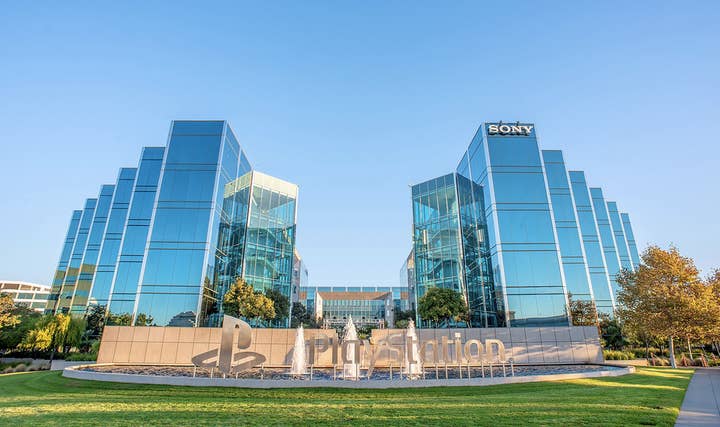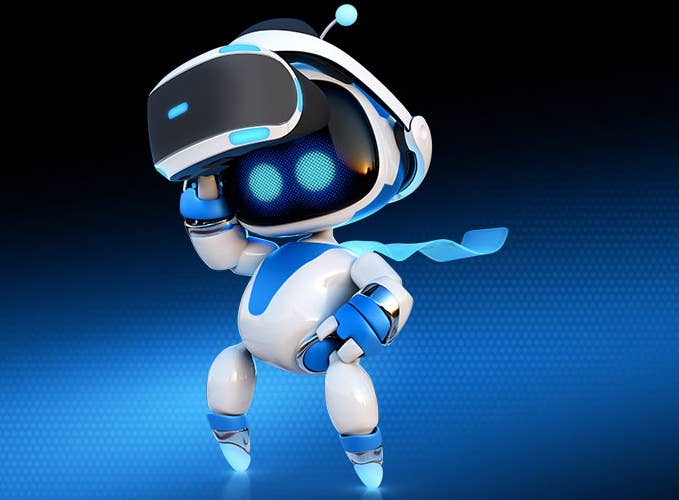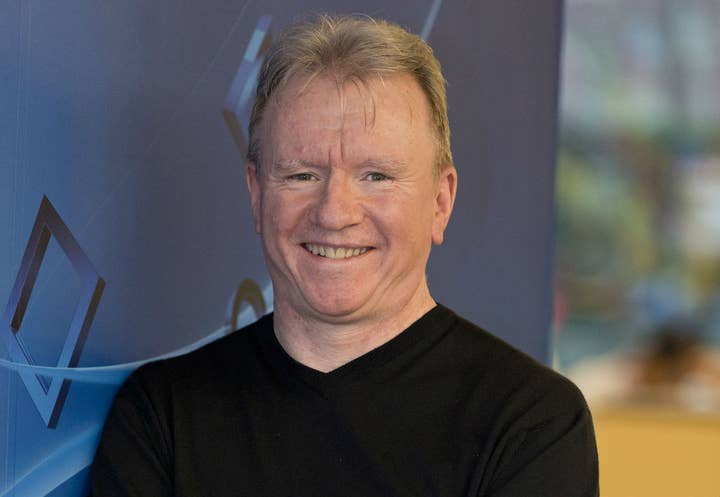Sony's Jim Ryan: We had to make changes to deliver our PlayStation 5 dream
PlayStation's CEO on the globalisation of Sony Interactive Entertainment
Jim Ryan wants to have a word.
PlayStation's boss wanted to address some of the points that were raised in an article we posted last month. The piece followed the reveal of PlayStation 5, and reflected some of the discontent we'd been hearing about Sony's strategy. There were concerns that the company's decision to not speak too much (and avoid the big industry shows) was giving an edge to its competitors. And then there's the disruption caused by PlayStation's recent restructure.
For much of its 25 year history, there were three different PlayStations: the US, Europe and Japan. It made the business complicated and inefficient at times, but it also gave the brand a regional flavour that helped it become successful around the world.
Over the past two years, PlayStation has been busy centralising its operations into one global organisation. It seemed unnecessary. Restructures are never painless, and when you consider that PlayStation 4 is now a rare member of the '100 million club', why change anything? If it isn't broke, why fix it? According to Ryan, it isn't about fixing anything, but rather getting ready for what's next.

"100 million is obviously a very notable landmark for any console," he begins. "We've only done it once before. We have enjoyed good times over this current generation, and when I stand back and look at the things that we've done quite well, we've done a good job of protecting and enhancing our brand. We've done well with exclusive content -- that has been a point-of-difference. But I think the interesting thing this time is the community that we've built.
"These are gamers who are networked and sticky and engaged and passionate about PlayStation to an extent that we've not seen in previous generations. As we move towards the next-generation in 2020, one of our tasks -- probably our main task -- is to take that community and transition it from PlayStation 4 to PlayStation 5, and at a scale and pace that we've never delivered on before.
"One thing that makes me particularly optimistic that what we're hearing from developers and publishers, is the ease in which they are able to get code running on PlayStation 5 is way beyond any experience they've had on any other PlayStation platform."
Ryan says he's confident in what PS5 has to bring. There is plenty more to announce beyond what has been shared this year, and he's personally focused on the games "that will make or break PlayStation 5, just as they do every platform." Yet to really deliver on its promise, Ryan says, PlayStation simply had to globalise.
"One of our tasks is to take that PS4 community and transition it to PS5 at a scale and pace that we've never delivered before."
"When we look at this transition and the ambition to do things at a scale and pace that we haven't seen, we have to look at ourselves and make certain changes. Some of which are in the ways we work, and some in the way we organise. You picked up on some of this in the article you wrote. I just wanted to clarify, or explain, some of the things that we are doing.
"If we are to be successful, we really have to leverage the opportunities that globalisation brings. I am going to give you some examples. One is around the productisation of PlayStation 5, the definition of the feature set, of the development and the implementation of those features. That process, this time around, has been massively more streamlined compared to anything we've done in the past. The product planners are now having one conversation instead of three different regional conversations, where they needed to reconcile positions that were often conflicting or contradictory, with an endless process of iteration and consensus. That's not happening anymore. We have one conversation and we get on and do stuff.
"The second area is in our marketing. The first global campaign that we ran was around Spider-Man. It's a great game obviously, but it also ended up as PlayStation's bestselling first party game. It was one global campaign conceived and executed in an outstanding manner, as opposed to three different regional campaigns that are often executed very well, but the same thing in essence done three times.

"You see that again with the new global brand campaign. It's slightly different here because it uses a global framework, but with regional applications. The European execution showcases FIFA principally, the US execution showcases Fortnite, and the Japanese execution showcases Final Fantasy VII. Again, this is one campaign with tailored regional executions, but the campaign is just done once. These are areas where we see having a global approach as being logical -- necessary perhaps -- and certainly beneficial to the gaming community."
The global approach is more streamlined, but that regional focus was part of what made PlayStation unique. The fact that the campaigns differed from market to market may seem wasteful, but it allowed Sony to have a presence in regions where its competitors barely register.
"Becoming a global organisation does not, in any way, shape or form, mean becoming an American organisation. I'm living proof of that"
"You know my background -- I built many of the teams in Europe," Ryan responds. "They're still there, all of these country-level managers who are outstanding, tough, professional and dedicated PlayStation executives. I submit that when it comes to our country-level activity, we've never spent more time focusing on getting that right.
"In the larger Western European economies, we're spending time, energy and money on executing campaigns around the enhancement of our digital proposition at retail, in a way that we've never really done before. This is obviously such a big part of our business. And at the other end, in what we call opportunity markets -- I prefer that to the rather patronising term of 'emerging markets' -- we have a very significant programme of investment in people, offices and marketing dollars.
"Closest to your home is probably Eastern Europe, where we are building a big PlayStation team there. We are building sizeable PlayStation businesses in Bulgaria, Romania, we're in the Czech Republic now and Hungary. There is serious investment going on and that has been on-going for a couple of years.
"Yes, we feel we need to become a more global organisation, but this is absolutely not at the expense of our in-market strength at a country level. And I really want to reinforce the point that globalisation does not mean Americanisation, or vice versa. Becoming a global organisation does not, in any way, shape or form, mean becoming an American organisation. I'm living proof of that, as a good Geordie boy sitting here running PlayStation."

Another manifestation of that is the news that another European, Guerrilla Games co-founder Herman Hulst, has stepped up to lead PlayStation's Worldwide Studios. Yet we shouldn't expect Hulst to start commissioning games for specific territories.
"The nature of AAA PlayStation 4 and certainly PlayStation 5 development... We're obviously not going to have Worldwide Studios make a game for one specific European country," Ryan says. "And that might have been the case back in the PSP times with Invizimals [which was popular in Spain]. I think this will be where Shuhei Yoshida's new task [of working with indies] will come in. If we are nimble, flexible and global, we can work with smaller developers to allow those countries' specific needs to be met."
Another issue with centralisation is in taking responsibility away from those who had it. There are now marketing and PR teams who have found they don't have the same autonomy they once enjoyed. It's not unusual for staff to leave a platform holder during a console transition, but it feels like PlayStation has lost more than a few names in recent months. It has also made cuts to some of its traditional marketing and PR teams, too. But with PS5 on the horizon, are things settling down now?
"It depends what you mean by settled," Ryan says. "I would say that our organisations and the way that we work will, by definition, need to evolve to keep pace with the change in how people play games, how games are distributed, how games are made, and the way games are consumed. I think that process of change is inexorable.
"Everybody, not just PlayStation, is in for a rollercoaster ride of constant evolution"
"The cloud is probably the most visible and topical manifestation of that. Because if you foresee a world in five years time where a significant amount of gaming content is distributed via the cloud, and games are made in a way that takes advantage of the cloud, then clearly organisational models that support that distribution scenario are going to be different to the organisation models that support physical products or digital downloads. Everybody, not just PlayStation, is in for a rollercoaster ride of constant evolution.
"It's human nature to view change as a risk, but change is every bit an opportunity. I would point to the fact that the transition from physical distribution to a networked world has led to PlayStation being able to build this amazing community of 100 million people within this generation, and at the same time enjoy considerable business success. That shift from physical to digital, five or six years ago, was viewed with great nervousness and trepidation. But, as far as I can tell from those who play games and for us, the impact of that transition has been entirely divine."
There is a significant amount of disruption going on in games right now. There is streaming and subscriptions, Google is coming in, Epic has opened a store. There are many lingering questions: What is a fair business model in digital? Does the subscription model make sense? Can streaming unlock new audiences? Ryan has taken charge of PlayStation at a time when there are a lot of things to work out.
"Yes, there are many questions where we don't have the answer yet. But I continue to be immensely optimistic, because we do have very strong core assets in our locker; the brand, the content and the community. Yes, there will be disruption. Yes, there will be new entrants with deep pockets and strengths in areas where distribution of content creation might move. But those new entrants don't yet have the strengths that we have, which have taken us many years to painstakingly accumulate. And all of those strengths [the brand, content and community]... They may not be readily understood in business terms, but they're much valued, much trusted and much loved by those who play PlayStation games. If we play to those strengths, I see no reason for us not to be really optimistic about the future."

PlayStation has been experimenting in new business areas for a while. In VR, for instance, PlayStation is the market leader, and although the number of announced, Sony-developed VR titles has slowed, Ryan says that the company remains committed to the category, with big offers planned around Black Friday and Christmas.
And then there's streaming. Microsoft's Project xCloud and Google Stadia may be grabbing all the headlines, but PlayStation Now is currently the most popular service. Sony hasn't heavily promoted the concept since it went live five years ago, but that changed last month with a price cut, the addition of some major games (including God of War) and a global marketing campaign. Ryan says that the results have been a 50% increase in subscribers to one million customers in just 30 days.
"We are taking this very seriously. The commitment we've made in terms of price cuts, the investment in content, the marketing campaign... It's a pretty vivid illustration of that seriousness. We've been doing this for a number of years and very quietly we've been taking an awful lot from it.
"We had an important inflection point earlier this year, when we were able to bring the last seven data centres online for Scandinavia, Italy and Spain, which gave us blanket coverage of Western Europe. That was a game changing moment, because as somebody who spent a lot of time in Europe, I was nervous talking too much about a service that a German player could enjoy but an Italian gamer could not. So we were switching on the lights at the various data centres and that process was rather time consuming. Only when we got to the point where we have the whole of Western Europe could we have a proper conversation with the European community and start to take this seriously."
PlayStation Now is a more compelling offer today, but Sony has resisted putting new games into the service. Microsoft's does that with its Game Pass subscription offering, with every new Xbox first party game available to subscribers.
"It's an area that is fast changing and fluid," notes Ryan. "The nature and scale of some of the first party games that we are making leads us to think that, right now, it's better to spend energy on making sure that the launch of those games is a massive entertainment event. I would cite God of War and Spider-Man, and The Last of Us 2 next year will fall into that category.

"That's where we stand right now. But our stance on the inclusion of first party games in PlayStation Now in terms of what we've done this month is very different to our stance 12 months ago. I don't want to say this is what PlayStation Now is going to be like forever. But certainly right now, given how some of our first party IP is incredibly special and valuable, we just want to treat them with amazing care and respect, and have those launches be clean and pure."
Yet if subscription was to become the new normal for games, the business might need to change again. Microsoft is aggressively acquiring developers and not so they can sell more boxes, or downloads, or even more consoles -- they're doing it to attract more subscribers. PlayStation already has a large number of studios, including the recently acquired Insomniac, but is it enough?
"We are always looking, but we are careful about who we look at and talk to. Buying studios right now is a very expensive undertaking. It is most definitely a seller's market. There is room for us to do more in that area, but we have to make sure that the company is right. The integration side of things... which is a boring business thing to talk about, but the world is littered with illustrations of that going catastrophically wrong post-acquisition.
"So we have to have confidence around that. It has to sit well with our portfolio. It's a very different world to the one when we acquired Guerrilla in 2005. You need to exercise a great deal of attention."
With all this in mind, perhaps it was inevitable for PlayStation to change. It has the games, the audience and the brand; now it needs to make sure it can move fast enough to react to whatever happens next.









